I am using Turbo C, and I've some query about my code. I'm just perplexed... The program first asks for a list of numbers(you shouldn't type more than 20). As the user types in the numbers, they are placed in the array list[]. Once the user terminates the list by typing 0*(which is not placed on the list)*, the program then calls the sort() function, which sorts the values in the list. At the last part, which has a comment of /*I AM NOW CONFUSED WITH THIS PART*/, is the part where I need your help... Kindly help me out.

File Edit Run Compile Project Options Debug Break/watch
╒════════════════════════════════════ Edit ════════════════════════════════════╕
│ Line 1 Col 43 Insert Indent Tab Fill Unindent * C:NONAME.C │
│ │
│ #define MAXSIZE 20 /* size of buffter */ │
│ void sort(int[], int); /* prototype */ |
│ |
│ main() |
│ { |
│ static int list[MAXSIZE]; /* buffer for numbers */ |
│ int size = 0; /* size 0 before input */ |
│ int dex; /* index of array */ |
│ do /* get list of numbers */ |
│ { |
│ printf("Type number: "); |
│ scanf("%d", &list[size]); |
│ } |
│ while(list[size++] != 0); /* exit loop on 0 */ |
│ |
│ sort(list,--size); /* sort nubmers */ |
│ for(dex=0; dex<size; dex++) /* print sorted list */ |
│ printf("%d\n", list[dex]); |
│ |
│ getche(); |
│ } |
│ |
│ void sort(int list[], int size) |
│ { |
│ int out, in, temp; /* I AM NOW CONFUSED */ |
│ |
│ for(out=0; out<size-1; out++) /* IN THIS PART! */ |
│ for(in=out; in<size; in++) |
│ if(list[out] > list[in]) |
│ { |
│ temp=list[in]; |
| list[in]=list[out]; |
│ list[out]=temp; |
│ } |
│ } |
│ |
│ |
├─────────────────────────────────── Watch ────────────────────────────────────┤
│ │
└──────────────────────────────────────────────────────────────────────────────┘
F1-Help F5-Zoom F6-Switch F7-Trace F8-Step F9-Make F10-Menu NUM